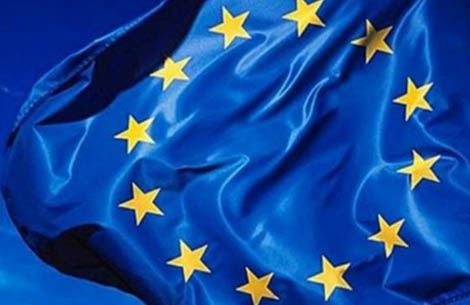 Seven business associations, municipalities through AMAL, the University and the Algarve Regional Coordination and Development Commission have just created a working group to define a joint strategy for the next financial programming period 2014-2020.
Seven business associations, municipalities through AMAL, the University and the Algarve Regional Coordination and Development Commission have just created a working group to define a joint strategy for the next financial programming period 2014-2020.
For this, it was signed this morning, at the headquarters of the CCDRA in Faro, a protocol between those entities. David Santos, president of CCDRA, stressed that «the methodology we have now adopted, of building a proposal with the participation of AMAL, UAlg and associations, will allow us to arrive at a better proposal».
Macário Correia, president of the Algarve Intermunicipal Community (AMAL), made a point of emphasizing that this is a «unique work in Portugal». The fact is that, underlined the mayor, «it is not easy for the North, for Lisbon, for the Center to do this work of articulation. This institutional cooperation framework is only possible in the Algarve, it is not possible in the rest of the country. We are the only NUT II that is NUT III and vice versa, with a single public university, a single association of municipalities, and truly regional based business associations. This is not the case with other regions».
What is at stake is to define the best possible strategy to take advantage of European funds in the 2014-2020 period, in what could be the last window of opportunity for the Algarve region to receive funding.
For now, highlighted David Santos, and in relation to the current community framework, in which the region was in the phase of phasing out, the Algarve is now "expecting on the new architecture of the model of objectives to be established in the next framework and respective eligibility".
The Algarve should now become, in the 2014-2020 period, a «transition region», but that should not mean more funds to be invested in the region, because, as highlighted by MEPs Ana Gomes (PS) and Marisa Matias (BE ) in the ensuing 'Strategy 2020' debate, the Community budget could be substantially reduced.
Vitor Neto, president of the Algarve Business Association (NERA), warned that, «in the next scenario, community funds may bring disappointment to the region, they may not be what we expected». Therefore, he argued, "we have to think beyond funds, and this is a challenge for all of us that requires effort."
He also stressed that the protocol that aims to bring together all public and private entities with a single voice in defining the regional strategy for the future framework of European support coincides with the work that the Algarve business associations were already doing: «the associations have been coming to meet in the last two months to structure a coordinated action to contribute to this definition of the strategy».
The president of the CCDR, for his part, would add that in this joint work, one of the most important aspects is the diagnosis of the regional situation. «We all know that the reality of the Algarve is different today from seven years ago». "In many areas we are much worse off than the rest of the country," he admitted.
David Santos also revealed that, in relation to the current framework, in force until 2013, the Algarve Operational Program has already committed 51 million euros, out of a possible 87 million.
But he highlighted the difficulties that private and especially public entities have in taking advantage of these available funds. In the case of public entities, the last ax was thrown by the Law of Commitments, which basically prevents these entities from being able to commit to new investment projects, despite the funds available for such.
At the conference that followed the signing of the protocol, which had the theme "The 2020 Strategy and its implementation at the regional level: Innovation and Employment", Macário Correia would return to the topic, saying that, in addition to the lack of financial conditions , «on the side of the local authorities there are no legal conditions to invest».
The AMAL president would also draw attention to the fact that “the 2006-2013 framework advanced when the European economies were growing. After eight, nine years, the situation is completely different». And the 2014-2020 strategy will have to take this into account. «The Algarve will be a transition region. Let's see how the government negotiates this with Brussels».
The protocol signed this Friday with CCDRA, involves AMAL and seven business associations: the Association of Merchants of the Algarve Region (ACRAL), the Algarve Hotels and Touristic Enterprises Association (AHETA), the Hotel Industry Association and Similares do Algarve (AIHSA), the Association of Construction and Public Works Companies (AECOPS) and the National Association of Young Entrepreneurs (ANJE).
The president of the CCDRA underlined that «the definition of a regional strategy for the 2014-2020 period implies the committed involvement of all, in order to ensure a thorough reflection on the reality and on the strategies to be followed in terms of economic, social and territory of the Algarve'.
«It is not our intention to close ourselves in our building, with our technicians and with our indicators, to define the strategic planning. We want to involve all actors», he stressed. «It is the first time that this joint work has been promoted, in the Algarve and in the country. After all, the crisis does not only have bad things, it also has good ones».


















Comments